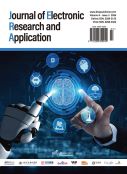Abstract
Under the background of the new era, higher requirements are put forward for colleges and universities to carry out teaching reform. Teachers of electrical automation control courses should update their teaching ideas regularly, innovate teaching methods, and take novel and effective measures to carry out related work. Because electrical automation control courses tend to be technology-oriented, teachers can help students consolidate basic knowledge. They should also focus on developing practical skills so students can easily adapt to future job positions. However, there are many problems in the actual teaching process, which hampers the improvement of the teaching quality to a certain extent. In view of this, this paper presents an in-depth exploration based on theories and practical experiences. It starts with an analysis of the current teaching status of electrical automation control courses in colleges and universities, followed by suggestions to improve them based on their characteristics and students’ needs.
References
Zhang R, Lu C, 2021, Analysis of Practical Teaching of Electrical Automation Control Courses in Colleges and Universities. Chinese Science and Technology Journal Database (citation Edition) Education Science, 2021(7): 3–4.
Qi R, Liu W, 2007, Innovation and Practice of the Complete Teaching System of Programmable Controller Courses for Electrical and Control Majors. Proceedings of the Fourth National Seminar on Teaching Reform of Electrical Engineering and Automation Majors in Colleges and Universities, 288–290.
Wu Q, 2020, How to Train Innovative Talents in the Teaching of Control Courses for Electrical Automation Majors. Bohai Rim Economic Outlook, 2020(2): 189–190.
Wang Y, Ling D, Zheng A, et al., 2020, Reform and Reflection on the Teaching of Principles of Automatic Control Under the Background of Engineering Education Certification. Contemporary Educational Practice and Teaching Research, 2020(05): 86–87.
Huang D, 2021, Research on the Cultivation of Innovative Talents in the Teaching of Control Courses for Electrical Automation Majors. Heilongjiang Science, 12(5): 118–119.
Xu M, 2020, Research on Practical Teaching of Electrical Automation Control Courses in Colleges and Universities. Science and Technology Innovation Review, 17(6): 170–171.
Bo R, 2023, Research on Teaching Reform of Single-Chip Computer Course for Electrical Automation Technology Major in Universities. Mold Manufacturing, 23(5): 100–102.
Hui M, 2022, Research on Teaching Reform of Electrical Automation Course Based on Craftsman Spirit Cultivation. Industry and Technology Forum, 21(2): 132–133.
Fang S, Hou M, Ma C, et al., 2022, Science and Technology Vision, 2022(26): 92–94.
Wang C, 2023, Research on Practice Innovation Teaching Reform of Electrical Automation Major in Colleges and Universities. China Science and Technology Economy News Database Education, 2023(4): 36–39.
Zhan H, 2023, Application of Integrated Teaching Model in the Training of Electrical Automation Professionals. Employment and Security, 2023(2): 58–60.
Deng Y, Discussion on Teaching Methods of Electrical Engineering and Automation Specialty in the Information Age. Scientific Advice, 2022(12): 114–116.
Xie D, Zhu J, 2022, Research on Practical Teaching Reform of College Curriculum Ideology and Politics in Electrical Major Curriculum. Knowledge Economy, 593(1): 128–129.
Shi J, 2022, Integration of Vocational Skill Competition and Electrical Automation Technology Course Teaching. Journal of Yueyang Vocational and Technical College, 37(3): 12–15.
Zhang F, 2022, Application of Experimental Teaching Method in Electrical Engineering and Automation Course of Secondary Vocational School. Science Advisory, 2022(17): 101–103.
